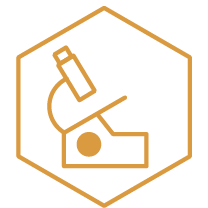Project Description:
Atomic force microscopy (AFM) is an experimental technique for measuring the mechanical properties of biological cells. In an AFM experiment, a very small bead is attached to the end of a micro-cantilever and pressed into the surface of a cell with a force of several hundred piconewtons (one piconewton = one trillionth of a newton, where a newton is the average weight of an apple). A laser system tracks how deeply the bead indents into the cell and a computer program is used to process the recorded data and estimate the mechanical stiffness or elasticity of the cell. Many factors can influence how soft or stiff a cell appears to be, including the shape and size of the cell itself and the size of the bead that is used to indent the cell. We also hypothesize that the elasticity of the substrate, or surface on which the cell grows, can also change how soft or stiff the cell appears to be when probed by AFM nanoindentation. In this summer project, students will grow cells on substrates of different stiffness and use an AFM system to measure cell elasticity. Students will also use a computer simulation technique called finite-element analysis (FEA) to model bead indentation into cells. We will compare the measurements from the AFM experiments and the predictions from the computational models to study the how the substrate influences whether the cell appears to be soft or stiff due to its environment.





